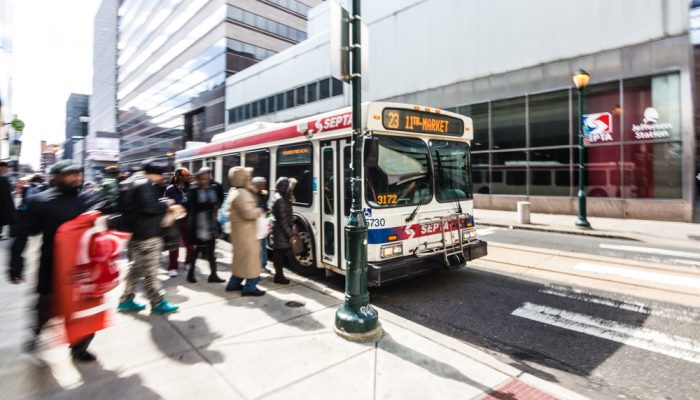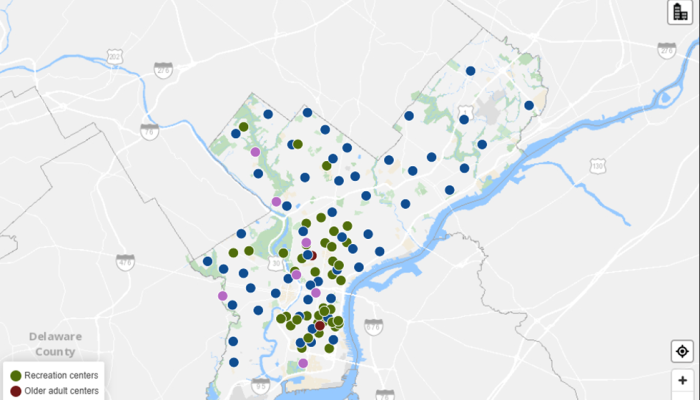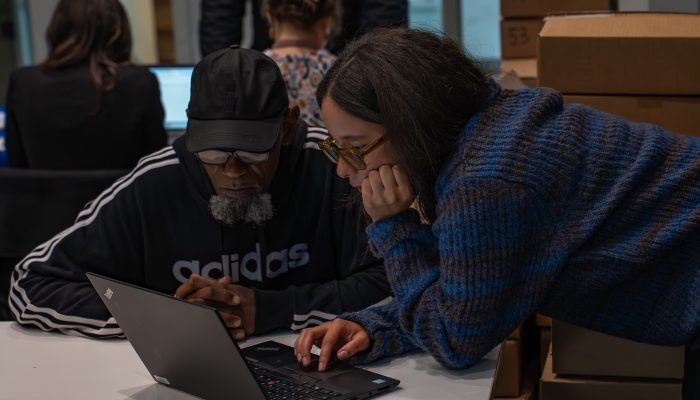Blog Post by Joanna Hecht, Pitch and Pilot Fellow, Office of Innovation & Technology
The SEPTA for All Challenge sparked numerous ideas for improving transit with augmented reality. The challenge culminated with Demo Day on November 17, 2021. Four teams presented their ideas for improving the experience of transit for people with disabilities.
The judging panel had intended to award a first and second prize. However, the panel chose two teams for first place and gave both the chance to test out their solutions in partnership with SEPTA. The teams, XR4U and Gensler, will split the $30,000 prize money evenly. XR4U was also awarded the “audience choice” award based on a vote from Demo Day’s participants, taking home an additional $3,000.
A video recording of the whole event is available online. Here are the highlights of the teams’ solutions:
XR4U
XR4U presented a design that modifies and enhances the existing SEPTA app. The new features will provide riders with real-time notifications of upcoming stops based on their origin, destination, current location. The notifications can be customized to be auditory, visual, and/or haptic (vibrations) to support individuals with a range of abilities.
Three accessibility issues motivated their proposal:
- Transit vehicles provide inaccurate stop announcements or do not provide announcements;
- People with disabilities have difficulty accessing information about detours and changes to trips while enroute; and
- People with disabilities report not having enough time to disembark the vehicle
XR4U’s design addresses these challenges by using marker and location-based augmented reality technology to create an easy to use and accessible interface.
Ila Kumar, a graduate student at MIT Media Lab, and Tarathorn Boonngamanong, a game design and VR major at Drexel University, are XR4U’s core designers. Throughout the design process they prioritized learning from people with lived experience, conducting user research with people with disabilities in Philadelphia to inform their solution.
Kumar and Boongamanong are excited to continue testing their concept with SEPTA and Philadelphia residents who have disabilities, to help SEPTA become more accessible to those who need it most.
Gensler
Gensler’s solution will help transit riders get to and around stations more comfortably and efficiently. Routing features show users the best path to a station stop or other destination, while alerting them to obstacles through visual, auditory, or haptic feedback. The long-term vision for the application includes adding routing information for internal transit stations.
Gensler is a global architecture and design firm, with a “very strong practice in designing transportation experiences and systems” and digital design technology, said to David Zaidain, leader of Gensler team.
“We thought this was an amazing opportunity to explore an issue [accessibility] that we see as critical to all of our projects, not just in transportation,” said Zaidain.
Moving forward
XR4U and Gensler will now work with SEPTA to test their solutions in Philadelphia. If successful, their prototypes could help our region’s transit become increasingly accessible and welcoming to people with disabilities.




